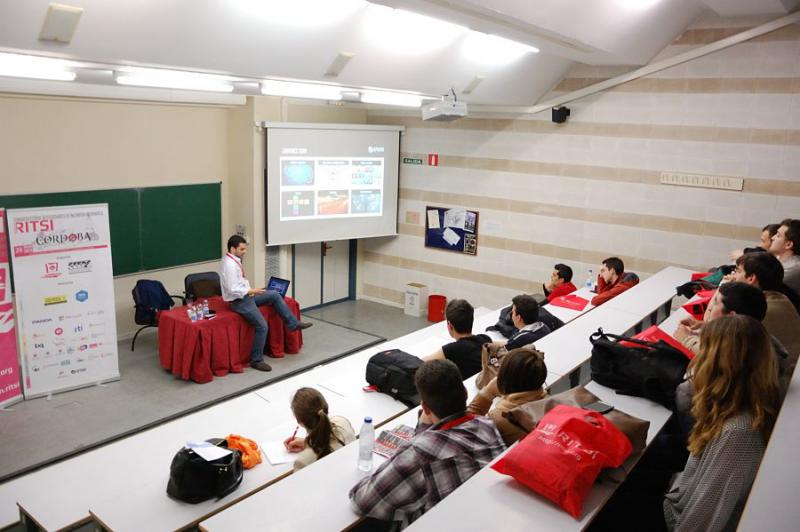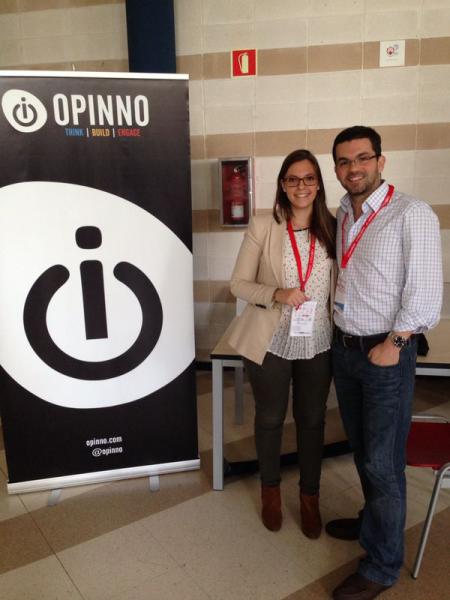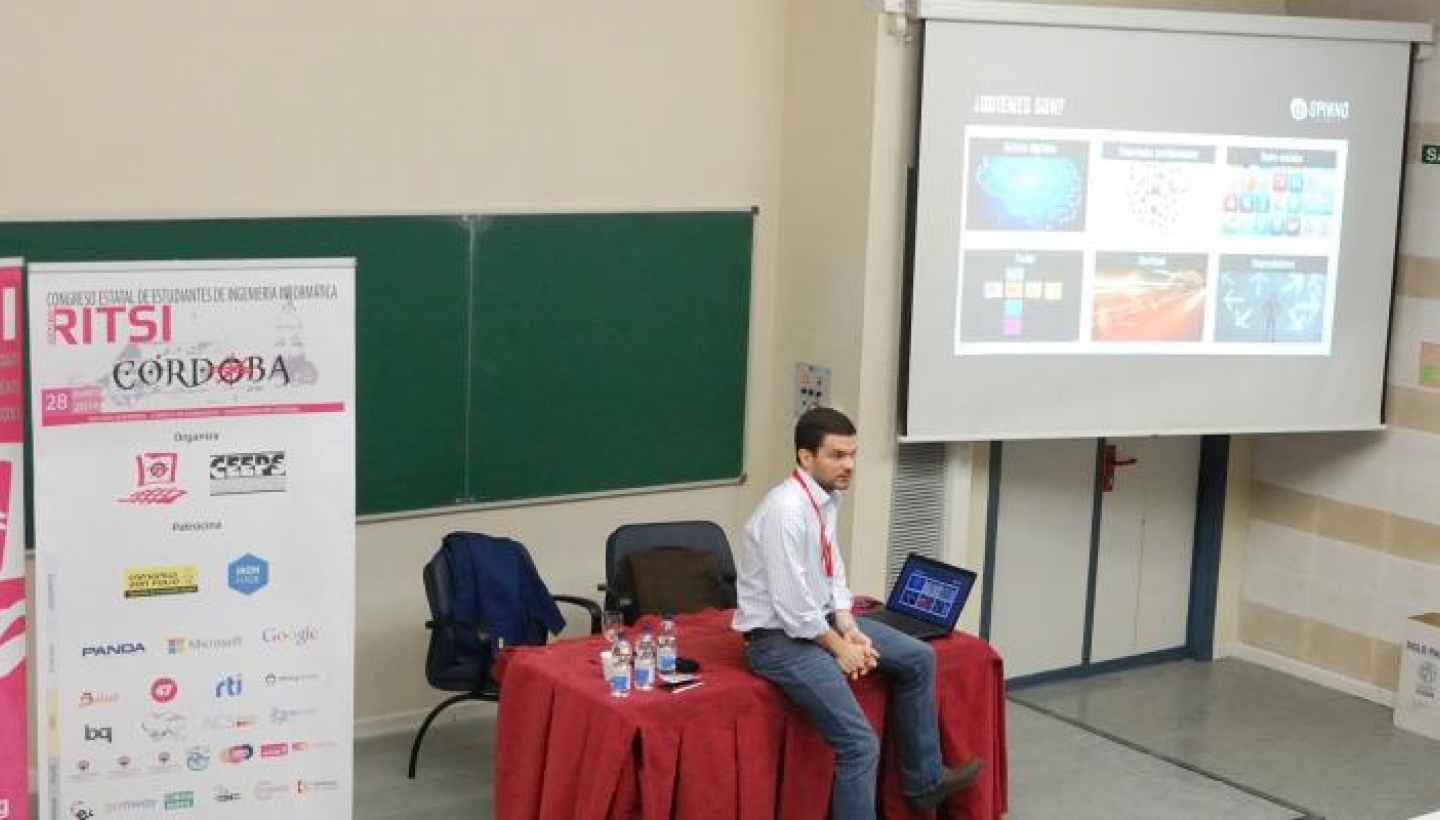His presentation, "Innovation and New Corporate Dynamics" brought us closer to the trends found within new business models: a constant evolution.
Our Director of Labs, Rafael Salazar, participated at the fifth Technical and Advanced Computer Engineering Student Reunion Conference (RITSI) at the Rabanales Campus of the University of Córdoba on March 28th.
The event, which joined nearly 1200 attendees and 33 speakers, was focused on university students affiliated with the field of engineering and who are interested in Robotics, Mobile Application Development and Artificial Intelligence.
As a central theme, Rafael presented that throughout history, momentous changes that affected humanity happened in widely spaced cycles of innovation, without introducing any disruptions after extremely long periods of time.
However, our generation has been immersed in a world where these changes happen faster and more frequently. An example of this dizzying pace is, according to Rafael, the technological advances in the field of telecommunications in the last decade.
Such changes are also happening in less dynamic sectors such as aerospace or the military industry.

In this sense, Salazar spoke about the democratization of power stating, "Before, the power was in the hands of large corporations and today it has become dispersed and divided. If someone proposes it, he or she can achieve a disruptive change. Today, we have all the tools at our disposal to achieve it."
Examples of such developmental process are young people with high aspirations, as in the case of Mark Zuckerberg, founder of Facebook, or Elon Musk, founder of PayPal, SpaceX and Tesla Motors; all unprecedented revolutions in its field.
But who were the protagonists of this change? For Salazar, the answer is Generation Y, commonly known as the "Millennials"; young people born after the year 1982 and have grown up in the digital era.
It is a perfect symbiosis, since Millennials have, in turn, been influenced by these changes from the start. This is a community that generates its own content everyday on different platforms offered by the internet and social networks. Even their consumption habits and work routine are closely related to this global phenomenon.
The statistics speak for themselves. Currently, the Millennials will change their jobs an average of 15 times before reaching the age of 38 in the US. Similarly, 80% of them prefer to work on something they like regardless of the money: "Before, our heroes were the astronauts or the big bosses of companies and they are now young people who commit to their ideas and carry them out. It’s idolatry of the entrepreneur,” he said.
The favored interconnection by advances in technology, the capacity for mobility, and multiculturalism are shown as the other major factors of this new business vision model, which has ended up transforming labor and social interaction spaces.
One of these transformations resulted in new open workspaces, with a relaxed, minimalist design that fosters the worker’s creativity. Another revolution is the concept of Co-working, which is applied at all OPINNO sites, and was dynamically displayed at the stand that we put up at the event to teach people how we work.

Salazar has also emphasized passion as a key factor in the success of the new generation and its interaction with the professional world. Thus, he has specified that a combination of technology, knowledge, networking and passion for ideas is the cocktail for triumph for these young people. "An entrepreneur without passion is a future business owner without a vocation," he said.
Finally, he emphasized the emergence of various methodologies that have been developed to redefine new corporate dynamics: learning models, lean methodologies or open innovation. In short: an excellent class for young talent and, above all, a passion for what they do.
Photos taken by Jorge Cabal Amieva and assigned to RITSI



